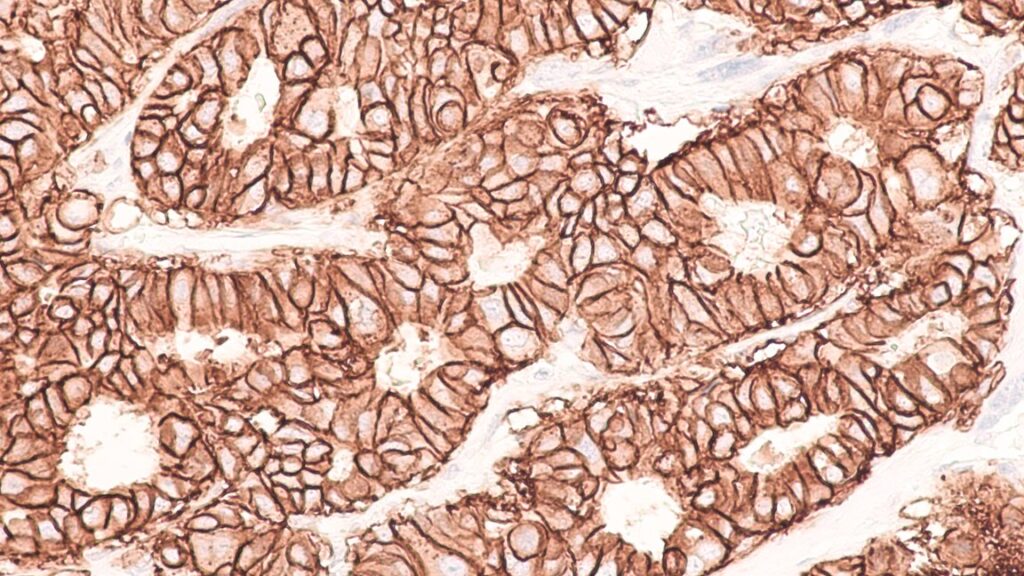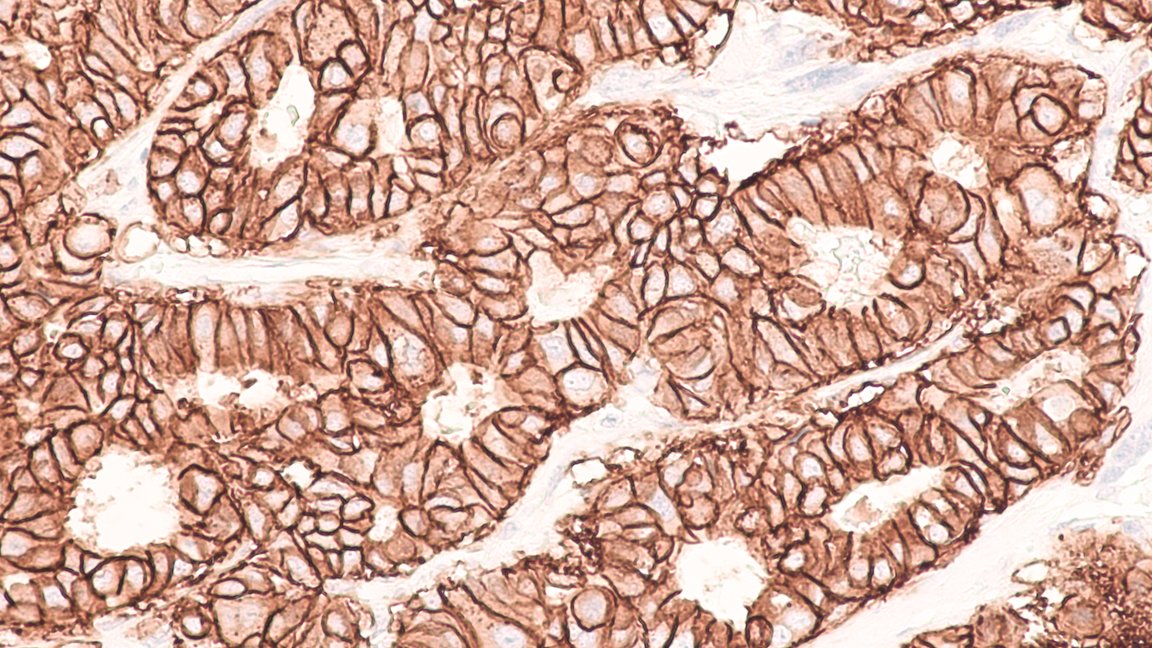
SOPHIA Phase III study of Margenza announces final OS data in HER2-positive breast cancer patients – MacroGenics

MacroGenics announced the final overall survival (OS) results of the SOPHIA Phase III study of Margenza (margetuximab-cmkb) in adult patients with metastatic HER2-positive breast cancer. The final OS analysis of the SOPHIA study was performed after 385 OS events occurred in the intent-to-treat (ITT) population. As per the study protocol, OS was defined as the number of days from randomization to the date of death (from any cause). The final OS analysis for the ITT population did not demonstrate a statistically significant advantage for Margenza plus chemotherapy compared to that of patients who received trastuzumab plus chemotherapy (hazard ratio [HR]=0.95; 95% Confidence Interval [CI]: 0.77-1.17; P=0.62). In this overall ITT population, the median survival was 21.6 months in patients treated with Margenza plus chemotherapy (N=266) compared to 21.9 months in patients treated with trastuzumab plus chemotherapy (N=270).
A pre-specified, non-alpha-allocated exploratory analysis evaluated the effect of CD16A allelic variation on Margenza activity. Among the patients in the trial carrying a CD16A 158F allele, representing approximately 82% of study patients (437 of 536 patients), the median OS was prolonged by 2.5 months in the Margenza arm compared to the trastuzumab arm (23.3 months versus 20.8 months; HR=0.86; 95% CI: 0.69-1.08; nominal P=0.19). The numerical OS advantage was observed in the subgroup of CD16A patients who were homozygous for the F-allele at position 158 (i.e., “F/F” patients) in favor of Margenza plus chemotherapy (HR=0.72; 95% CI: 0.52-1.00; nominal P=0.05). In this subgroup, the median OS was 23.6 months in patients treated with Margenza plus chemotherapy (102 of 266 patients) compared to 19.2 months in patients treated with trastuzumab plus chemotherapy (90 of 270 patients).
In the subgroup of CD16A F/V patients, the median OS was 21.3 months in patients treated with Margenza plus chemotherapy (119 of 266 patients) compared to 22.0 months in patients treated with trastuzumab plus chemotherapy (126 of 270 patients) (HR=0.96; 95% CI: 0.71-1.30; nominal P=0.78). In a small subgroup of CD16A V/V patients, OS was greater for trastuzumab plus chemotherapy than Margenza plus chemotherapy (HR=1.77; 95% CI: 1.01-3.12; nominal P=0.04). In this subgroup, the median survival was 22.0 months in patients treated with Margenza plus chemotherapy (37 of 266 patients) compared to 31.1 months in patients treated with trastuzumab plus chemotherapy (32 of 270 patients). The safety profile at the time of the final OS analysis of SOPHIA was similar to what was previously reported and consistent with the product’s existing FDA-approved label.
In 2020, Margenza was approved by the FDA in combination with chemotherapy for the treatment of adult patients with metastatic HER2-positive breast cancer who have received two or more prior anti-HER2 regimens, at least one of which was for metastatic disease. The basis for this full approval was the progression-free survival (PFS) results in the SOPHIA study, which compared Margenza plus chemotherapy to trastuzumab plus chemotherapy in patients with metastatic HER2-positive breast cancer.